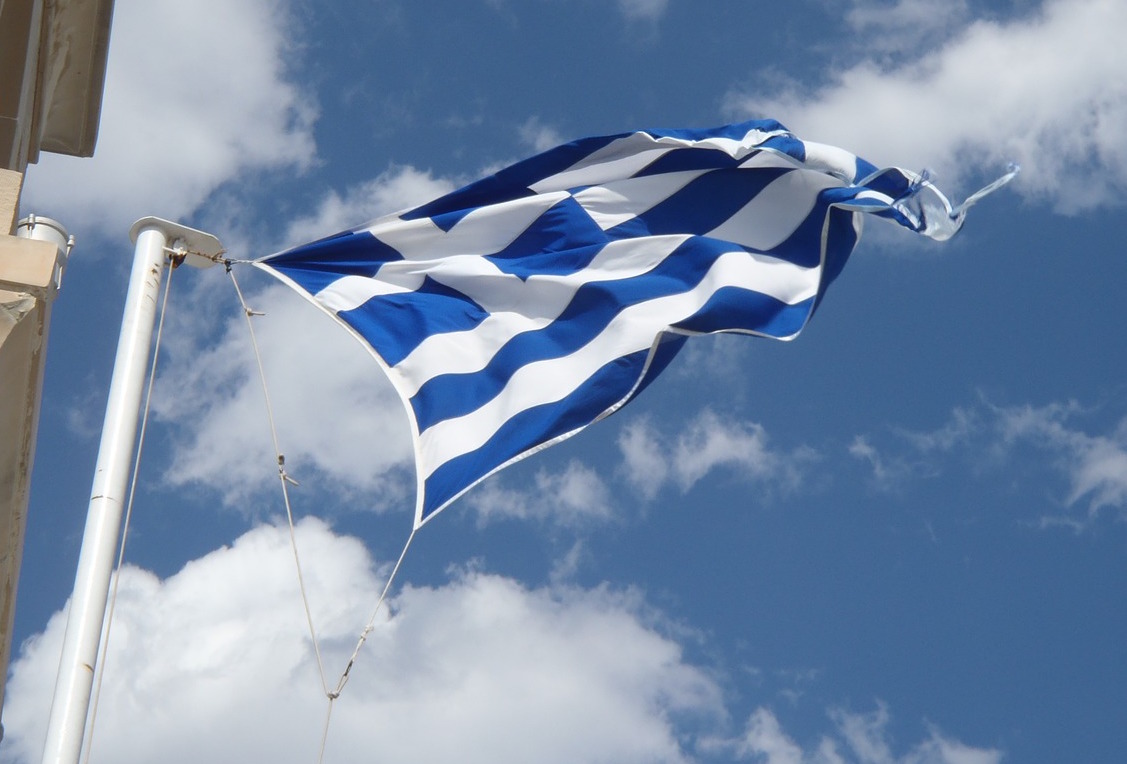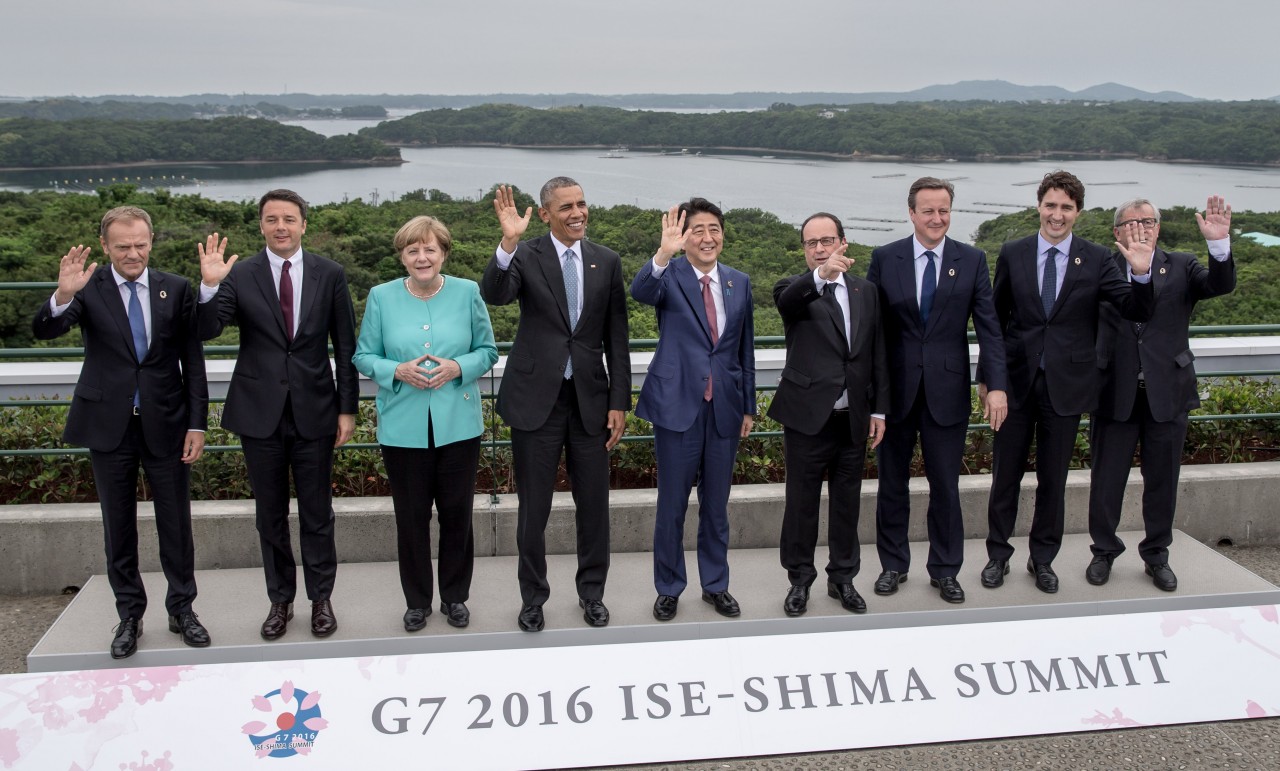
Brexit, Cuba, South Korea. 21 to 27 May: What just happened?
Who are the UK public supposed to believe when it comes to staying in the EU?
The debate in the UK over whether it should leave or remain as a part of the European Union intensified this week as politicians on both sides clashed over the debate. Yes, in a month’s time the people of Britain have to vote whether to stay in or out. With many still undecided, it’s difficult to say which way it will go. It’s a big decision: one which will almost certainly affect the economic prospects of the country for years to come. The problem is, no one can really tell how. On Monday, the UK’s leader David Cameron and the man in charge of the money George Osborne made their thoughts clear: leaving “would put our economy in serious danger and make the country permanently poorer.” An organization called the Institute for Fiscal Studies said leaving would extend austerity in the UK for two more years, meaning harder times for everyone. Leave campaigners immediately said they were talking rubbish. And on the same day as Cameron said leaving was dangerous, his former advisor Steve Hilton insisted Britain should leave, saying that being a part of the EU made Britain “impossible to govern”. For him it’s a question of the country being able to decide its own fate. People like former mayor of London Boris Johnson agree with him. Deciding for sure who’s right is difficult. And with each side saying different stuff, it comes down to a question of who to believe. For a lot of voters, the fact that the argument has descended into little more than name calling already is proving very frustrating indeed.
Forget being a lawyer. In Cuba, working a bar, not passing it, might be the better option

Cuba has announced plans that it will legalize small and medium-sized private businesses. This is big – private business has been banned in Cuba since the revolution in the 1950s. In theory, Cuba is what’s called centrally planned – the economy is totally controlled by government. In practice, people have worked for themselves here and there for a while now, mainly because state salaries are so low that you could actually earn more as a bartender, waiter, taxi driver, or something else tourism-related than as a government employed lawyer or doctor. Now that they can do it out in the open, we might be about to see a seriously big shift in the economy of one of the last countries to call itself ‘communist’ in the world.
Beware EU ministers bearing gifts?

Greece has received another $11.5 billion from the International Monetary Fund as a thank you for the cuts to it passed in parliament last week. The money will come through in the next two months. If Greece’s debt isn’t paid off by 2018, it’s possible they’d get what’s called ‘debt relief’ - meaning improved terms on which the remaining debt can be paid. Germans are worried this will mess up the incentives for Greeks to stick with the austerity reforms that have been going on for some time now, and encourage them to spend, knowing the debt will probably be forgiven. They probably don’t have much to worry about just yet – the Greek government system is pretty much frozen at the moment, with any transaction that requires court approval on hold. Greeks aren’t best pleased – even lawyers, engineers and doctors are on the streets in what’s being called the ‘necktie movement’ asking for more money to be put into government institutions to get the system moving again. Everyone has a different perspective on the best way forward: the president of the Eurogroup said: “we are asking a lot of the Greeks, the IMF is asking a lot of us, and we are asking a lot of the IMF”. This deal is at least a sign that things are moving forward. Here’s hoping they’ll start moving a little faster in the near future.
Attack of the tomato killers

Nigerian tomatoes became five times more expensive than usual this week after the Tomato Leaf Miner, a moth which feeds on tomato stalks, damaged 80% of farms growing the crop. Nicknamed ‘Tomato Ebola’, the insect has caused over $5.1 million in losses over the last month alone. Tomatoes are a main ingredient in lots of Nigerian dishes, and the scarcity means many people simply now can't afford them. And it’s not just supply that’s the issue: Nigeria actually has to import $1 billion in tomato paste products each year, because despite being Africa’s second-largest tomato producer, their storage facilities are so bad that huge amounts of tomatoes just get spoiled. The country is having a hard time as it is, with fuel shortages and a drop in the value of its currency, the naira. It doesn’t help that Spain is celebrating its annual La Tomatina festival this week, where people throw masses of tomatoes at each other on the streets. Nigerians are taking to Twitter to have a tongue-in-cheek swipe at the tomato-drenched Spaniards for wasting such a precious crop.
And while we are desperately looking for tomatoes in Nigeria, in Spain they have so much that they play with it! pic.twitter.com/v2KDpTR784
— Reno Omokri (@renoomokri) May 24, 2016
The magniloquent seven

The G7 conference took place in Japan this week, with leaders of seven of the world’s biggest industrial democracies coming together to discuss the big issues, make grand statements, and have a bit of fun. The exclusive club includes the US, UK, Italy, Japan, France, Germany, and Canada, and topics on the agenda included everything from terrorism to the refugee crisis to self-driving cars (though they probably only included those as an excuse to have a test drive). Global leaders often talk about how important ‘growth’ is, and this summit was no exception: but although they often agree that growth is good, they don’t always agree on how to achieve it. Japanese PM Shinzo Abe wants to encourage government spending and have the permission to fiddle with the value of his currency on international markets (called an ) to stimulate the economy. The UK and Germany aren’t keen on this idea at all, which makes sense if you consider that they both encourage what’s known as ‘austerity’ policy in their countries, or reducing government spending to make the economy work better. They did agree on increasing global aid for refugees, and putting the decisions they made in Paris about the climate into action by the end of the year.
In other news…
No sugar, no coke. Coca-Cola has halted production at its plant in Venezuela because of a sugar shortage. It seems like things are getting worse and worse in the country:most news organizations are reporting food, fuel and medicine shortages leading to protests in the streets pretty much all the time. It’s not looking good.
Crime pays, education doesn’t. It’s been reported that a primary school teacher in Cambodia allegedly set up an armed gang and turned to violent crime because his salary was so low. Apparently the 62-year-old teacher carried out a series of armed robberies, the most recent of which saw some $120,000 worth of jewellery and cash stolen. He’s now been arrested after five years on the run.
Quick, get a round in. Up until this week, Finland had some unusually strict laws around purchasing alcohol: no buying more than one drink at a time at a bar, no buying alcohol on Finnish credit cards, no advertising happy hours. In a move that one party called ‘less patronising, more sense,’ they’ve decided to loosen up this week, scrapping the credit card rule and allowing people to buy several drinks at once. Some people on social media welcomed the shift from what they called a ‘nanny state’, where governments get involved in the market, to more of a ‘European drinking culture’, where no one cares what the government does because everyone's drunk all the time. Kippis!
Hang in there, South Korea has found the perfect hangover cure: ice cream!

Had a heavy night out in Finland? Hop on a plane to Seoul and grab a ‘hang-in-there bar’, an oriental raisin tree fruit juice ice cream just launched in South Korea to ease your hangover blues. According to its manufacturer, the name of new ice cream “expresses the hardships of employees who have to suffer a working day after heavy drinking, as well as to provide comfort to those who have to come to work early after frequent nights of drinking.” It’s based on traditional hangover remedy that dates back to the 17th century, so it’s got to be good. And South Korean consumers know what they’re talking about when it comes to hangover cures: they spend over $126 million on them a year, and have more alcoholics than anywhere else in the world. The reason: drinking is seen as an essential way to bond with colleagues and advance your career. The drink of choice is called Soju which, with an alcohol content of 20%, is designed to get you drunk fast. It’s just the newest of many hangover cures on the market, including the drink Hut-gae Condition, as featured in the Psy/Snoop Dogg track ‘Hangover’, which has the immortal line: “hangover, hangover, hangover, hangover, hangover”. Ouch. Mmmmm.



